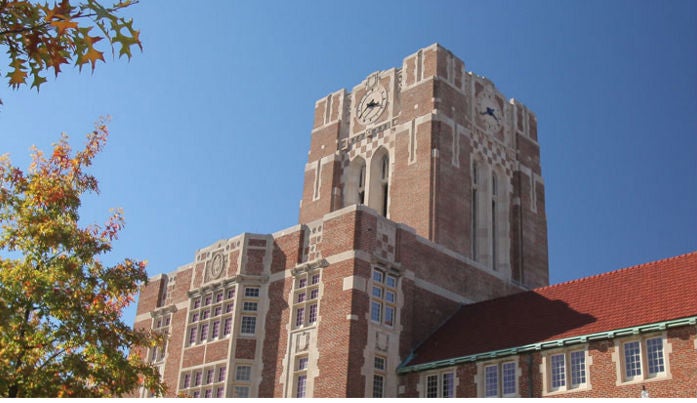Six women accuse University of Tennessee of enabling student athlete rape culture
The women gathered to file a lawsuit against the University for its ‘biased’ discipline system against victims and in favour of football players

Your support helps us to tell the story
Our mission is to deliver unbiased, fact-based reporting that holds power to account and exposes the truth.
Whether $5 or $50, every contribution counts.
Support us to deliver journalism without an agenda.

Louise Thomas
Editor
Six women have filed a lawsuit against the University of Tennessee (UT) for allowing student athletes to foster a "rape culture" and for maintaining a disciplinary system which is "biased" in favour of football players.
The women, named only “Jane Does”, have accused five Tennessee athletes of sexual assault. Former basketball player Yemi Makanjuola, former football players A.J.Johnson, Michael Williams and Riyadh Jones, and current football player “John Doe” have been accused, as reported by the Tennessean.
Mr Makanjuola transferred to the University of North Carolina Wilmington shortly after accusations of assault in February 2013.
Mr Williams and Mr Johnson await trials in June and July related to the alleged assault of the same woman during a football party in December 2014.
The lawsuit also includes an incident involving a female student who was allegedly assaulted by a non-athelte, also identified as John Doe, after a football party at a campus dorm.
More than 12 examples of bad behaviour by football players are listed in the lawsuit, including underage drinking, sexual harassment, assault, armed robbery and sexual assault, and details how these men were not apprehended. These examples did not involve the plaintiffs, but furthered their argument that the UT system is biased in favour of student athletes.
The women said that the University violated Title IX laws, which protect students from gender discrimination. The lawsuit said the University showed “deliberate indifference and a clearly unreasonable response after a sexual assault that causes a student to endure additional harassment”.
The University “delayed the investigation process until the athlete perpetrators transferred to another school or graduated without sanction or discipline,” the lawsuit added.
The claims follow a leaked memo in 2013 from Tim Rogers, a 38-year veteran of UT, who expressed concerns that the athletics department inappropriately pressured officials in charge of campus discipline.
UT responded that it had devoted “significant time and energy to provide a safe environment” for students and to educate and encourage victims to report sexual assault.
“When the University receives a report of sexual assault, we offer care and support to the person who came forward and work to investigate and resolve the matter in a timely, thorough, and equitable manner. When warranted, the University takes disciplinary action but will not do so in a manner that violates state law or the constitutional due process rights of our students,” the statement read.
UT added that in the case of the six women it acted “lawfully and in good faith".
“Any assertion that we do not take sexual assault seriously enough is simply not true. To claim that we have allowed a culture to exist contrary to our institutional commitment to providing a safe environment for our students or that we do not support those who report sexual assault is just false,” it said.
The plaintiffs have argued that the UT administrative process is unique and that student athletes often hire the same lawyer, Dan Bosch, to represent them.
The plaintiffs are seeking damages for emotional suffering, reimbursement and pre-payment for all of their tuition, as well as damages for deprivation of equal access to educational benefits.
This lawsuit is one example amid a long and expanding line of similar accusations of a rape culture across student campuses in the US, exposed in a documentary called "The Hunting Ground".
Last month Erica Kinsman, who identified herself in the documentary, agreed to settle with Florida State University (FSU) after she sued her school for how it dealt with her claim of sexual assault against its star quarterback Jameis Winston.
Like UT, FSU insisted on its innocence in the matter.
Subscribe to Independent Premium to bookmark this article
Want to bookmark your favourite articles and stories to read or reference later? Start your Independent Premium subscription today.
Join our commenting forum
Join thought-provoking conversations, follow other Independent readers and see their replies
Comments